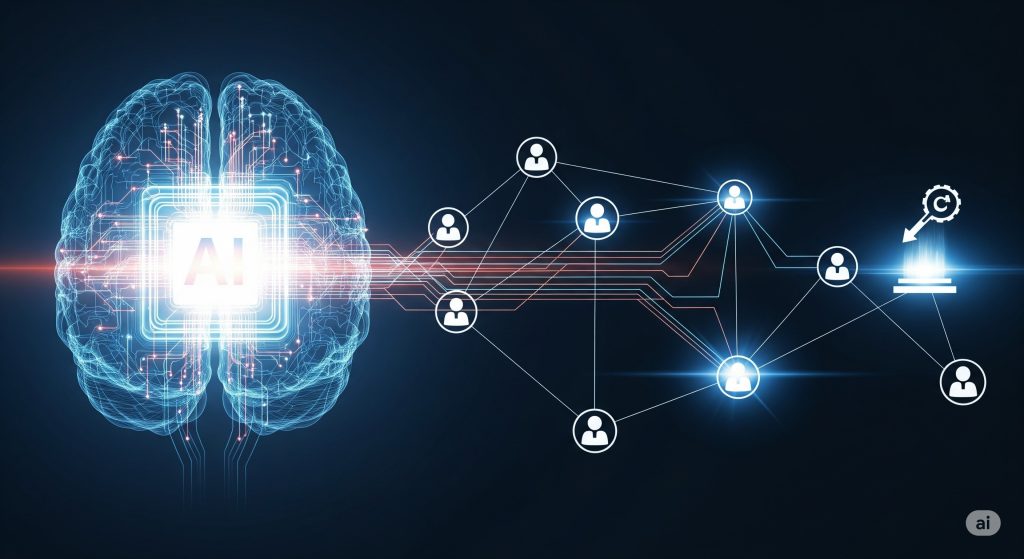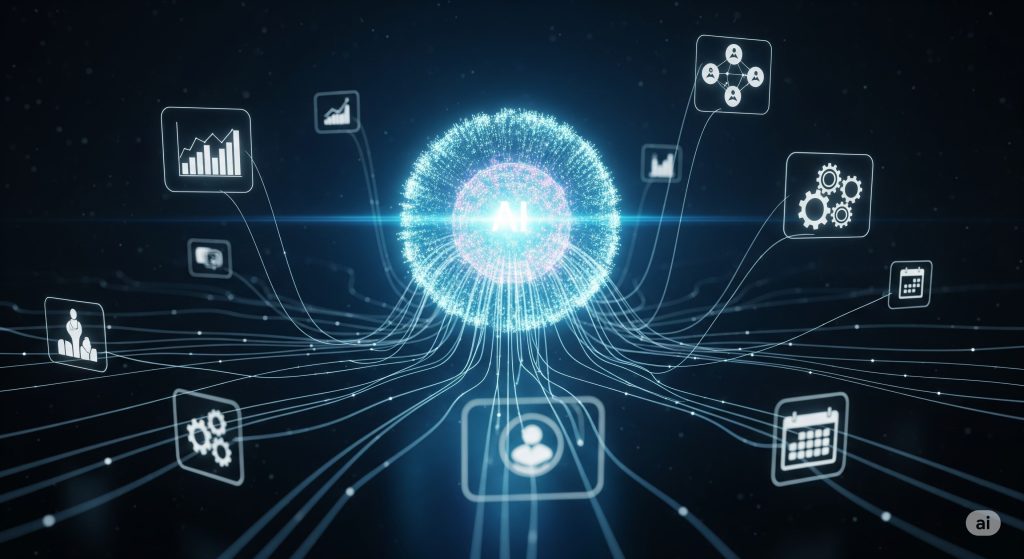Did you know that personalized follow-up emails can significantly enhance patient engagement in healthcare? In today’s fast-paced medical landscape, effective communication is more crucial than ever. Enter AI technology, which is transforming how healthcare providers interact with patients by crafting tailored messages based on previous interactions. This innovative approach not only boosts response rates but also fosters stronger relationships between patients and providers. By continuing to read, you’ll discover how AI is revolutionizing follow-up practices, the tools available for personalization, and real-world success stories that highlight the future of communication in healthcare.
Introduction to AI in Healthcare
In the healthcare industry, follow-up is not just a courtesy—it’s a critical component of patient care. Effective follow-up practices ensure that patients feel valued and understood, which can significantly enhance client engagement. By maintaining open lines of communication, healthcare providers can address patient concerns promptly, leading to improved health outcomes and increased patient satisfaction.
The challenge, however, lies in managing these interactions efficiently. This is where AI technology steps in, offering innovative solutions to streamline follow-up processes. By automating routine tasks, AI allows healthcare professionals to focus on what truly matters: patient care.
How AI is Revolutionizing Follow-Up Emails
AI technology is transforming the way healthcare providers communicate with patients, particularly through follow-up emails. These AI-driven solutions analyze data from previous client interactions to craft personalized messages that resonate with individual patients. This level of personalization is a game-changer, as it not only boosts response rates but also strengthens the relationship between patients and providers.
“AI has the potential to revolutionize healthcare communication by making it more personalized and efficient,” says Dr. Emily Carter, a leading expert in healthcare technology. By leveraging AI, healthcare providers can ensure that their follow-up emails are not only timely but also relevant to each patient’s unique needs.
Understanding Client Interactions
To effectively personalize follow-up emails, it’s essential to understand client interactions. AI tools can analyze vast amounts of data, including patient history, preferences, and previous communications, to gain insights into what each patient values most. This understanding allows healthcare providers to tailor their messages, ensuring that they address specific concerns and foster a sense of connection.
For instance, if a patient has expressed anxiety about a particular treatment, an AI-generated follow-up email can include reassuring information and resources to help alleviate their concerns. This targeted approach not only enhances client engagement but also builds trust and loyalty.
Personalization: The Key to Engagement
Personalization is at the heart of effective healthcare communication. By crafting messages that speak directly to a patient’s needs and experiences, healthcare providers can significantly increase engagement. AI technology makes this level of personalization possible by analyzing data and generating tailored content that resonates with each individual.
Consider the impact of receiving a follow-up email that acknowledges a recent appointment and provides specific advice or resources related to the patient’s condition. This personalized touch demonstrates that the healthcare provider values the patient as an individual, not just a number.
AI Tools for Crafting Personalized Emails
Several AI tools are available to help healthcare providers craft personalized follow-up emails. These tools use machine learning algorithms to analyze patient data and generate content that is both relevant and engaging. Some popular AI-driven solutions include:
- Natural Language Processing (NLP): This technology enables AI to understand and generate human-like text, making it possible to create emails that feel personal and conversational.
- Predictive Analytics: By analyzing past interactions, predictive analytics can anticipate patient needs and suggest content that is likely to resonate.
- Automated Content Generation: AI can automatically generate email content based on predefined templates and patient data, saving time and ensuring consistency.
Case Studies: Success Stories in Healthcare
Real-world success stories highlight the transformative impact of AI in healthcare communication. For example, a leading healthcare provider implemented an AI-driven email system that increased patient response rates by 30%. By personalizing follow-up emails based on patient history and preferences, the provider was able to foster stronger relationships and improve patient satisfaction.
Another case study involved a hospital that used AI to streamline its follow-up process, reducing the time staff spent on administrative tasks by 40%. This allowed healthcare professionals to dedicate more time to patient care, ultimately enhancing the overall quality of service.
Overcoming Challenges with AI
While AI offers numerous benefits, it’s important to acknowledge the challenges that come with its implementation. Data privacy and security are top concerns, as healthcare providers must ensure that patient information is protected. Additionally, there may be resistance to change from staff who are accustomed to traditional methods.
To overcome these challenges, healthcare organizations should invest in robust security measures and provide comprehensive training for staff. By addressing these issues, providers can fully leverage the potential of AI to enhance healthcare communication.
Future of AI in Healthcare Communication
The future of AI in healthcare communication is promising, with ongoing advancements set to offer even more innovative solutions for patient engagement. As AI technology continues to evolve, we can expect to see more sophisticated tools that further personalize and streamline communication processes.
“The integration of AI in healthcare is just beginning, and its potential to improve patient engagement is immense,” notes Dr. John Smith, a pioneer in AI research. By embracing these advancements, healthcare providers can ensure that they remain at the forefront of patient care, delivering personalized and efficient communication that meets the needs of today’s patients.
Conclusion and Key Takeaways
AI is reshaping healthcare communication, particularly through personalized follow-up emails that enhance patient engagement. By automating and tailoring messages based on individual patient data, healthcare providers can foster stronger relationships and improve satisfaction. While challenges like data privacy exist, the benefits of AI in streamlining communication are undeniable. As we look to the future, embracing these advancements will be crucial for delivering effective patient care. Consider how your practice can leverage AI tools to enhance follow-up strategies and ultimately improve patient outcomes. Engage with us—share your thoughts on AI’s role in healthcare communication!
FAQs
- How does AI personalize follow-up emails in healthcare?
AI analyzes patient data and previous interactions to craft messages that address individual needs and concerns, enhancing engagement and response rates.
- What are the benefits of using AI for follow-up emails?
AI-driven emails are timely, relevant, and personalized, leading to improved patient satisfaction and stronger provider-patient relationships.
- What challenges might healthcare providers face when implementing AI?
Challenges include ensuring data privacy and security, as well as overcoming resistance to change from staff accustomed to traditional methods.
- Can AI tools be integrated with existing healthcare systems?
Yes, many AI tools are designed to integrate seamlessly with existing systems, enhancing communication without disrupting current workflows.
- What is the future of AI in healthcare communication?
The future is promising, with advancements in AI technology expected to offer even more personalized and efficient communication solutions for patient engagement.


